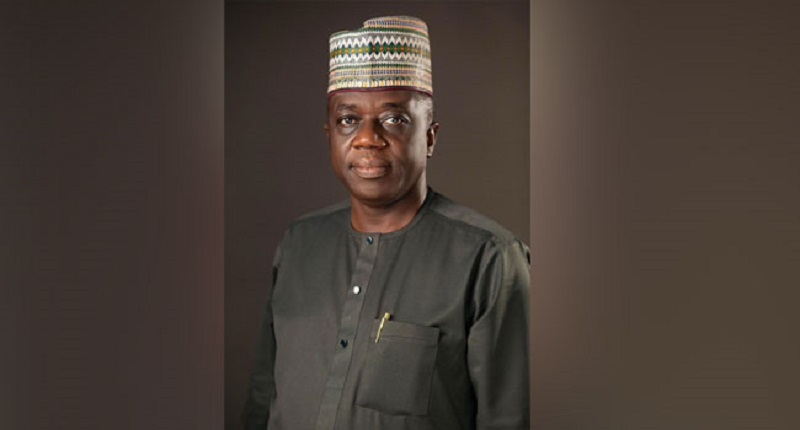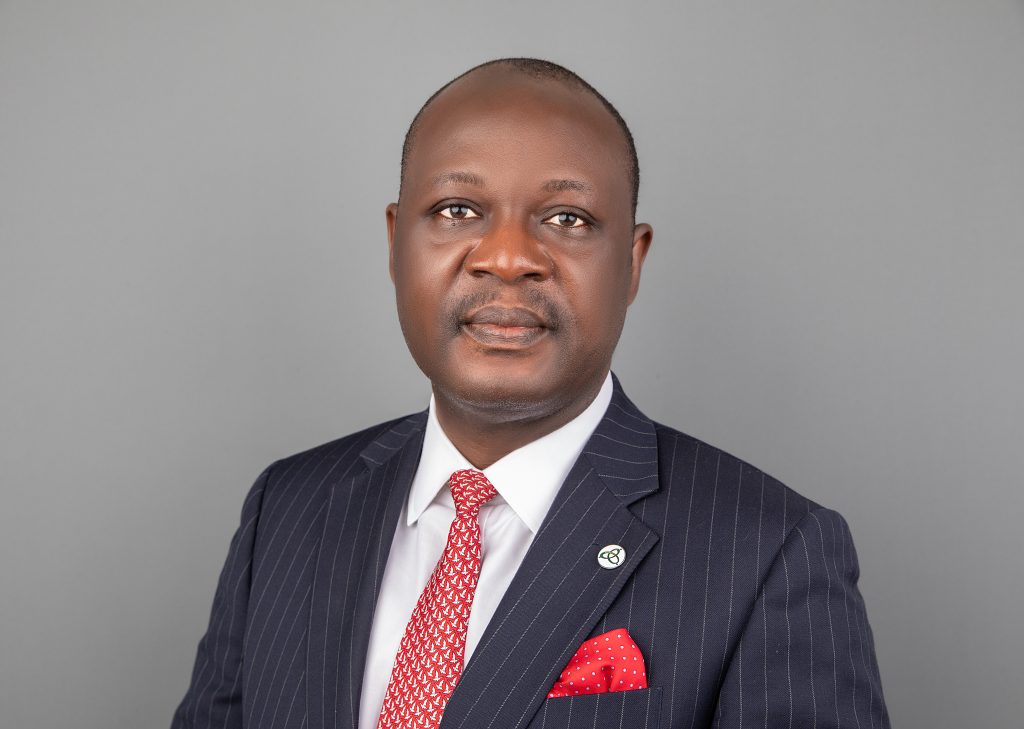Jobs/Appointments
Tanzanian Heads UN Convention on Biological Diversity

By Kester Kenn Klomegah
Elizabeth Maruma Mrema, a national of the United Republic of Tanzania in East Africa, has been appointed as the new Executive Secretary of the United Nations Convention on Biological Diversity.
She is a lawyer based in Montreal, Canada and she takes on her new role after more than a decade in leadership positions at the United Nations Environment Programme (UNDP) – and at a crucial time.
She has published several articles related to international environmental law, compliance and enforcement of conventions and developed, among others, a number of multilateral environmental agreements negotiation tools, handbooks and guidelines currently used by UNEP in its capacity-building programmes.
By her appointment, Elizabeth Mrema becomes the first woman from Africa to lead the intergovernmental body.
She will oversee the creation of a global biodiversity agreement for the next decade. It, therefore, means she has a mighty task ahead of her, leading countries as they negotiate new biodiversity targets.
The biological diversity was created by a UN treaty, signed into force by nations in 1992, and helps to set global targets to conserve biodiversity.
The previous global biodiversity targets, signed in 2010 and called the Aichi targets, are widely agreed to have failed to stop species loss.
Some scientists are now renewing calls for a single target to halt species extinction. But others worry that an extinction target would neglect other important goals of the agreements, such as ensuring that benefits from biological resources are shared.
“One could say that I have been appointed at a bad time for biodiversity, considering that the whole world is just emerging from, or still in, lockdown,” she says. “But at the same time, I see it as a major opportunity, as biodiversity is being discussed more than ever before.”
The new coronavirus, which originated in animals before it spread to people, has also brought renewed calls to stop the trading of wildlife, provoking long-simmering tensions between those who want to conserve species, and those pushing for their sustainable use.
There is greater awareness of the impact that human activities can have on nature, and of the connection between human health and biodiversity.
The interference, through deforestation, agricultural expansion, livestock intensification and habitat fragmentation, has exposed wild animals and brought them into closer contact with people, which has resulted in the spillover of pathogens and zoonotic diseases, human-to-human transmission through trade and tourism, and the explosive pandemic currently in the world, explains Elizabeth Mrema.
But the coronavirus pandemic has brought these issues to the fore and has emphasized discussions about how to prevent future pandemics.
Closing wet markets and banning wildlife trading totally would negatively affect communities who depend on wild animals. The consumers and buyers of wild animals are not poor people; they are the affluent communities in the cities. A total ban would also open the door to illegal trade in wildlife.
“Instead, we need more hygienic practices in wet markets that continue to operate, and regulated wildlife trade, within the framework of the Convention on International Trade in Endangered Species of Wild Fauna and Flora.
“We need to ensure the sustainable consumption of species for those communities who rely on this, while also curbing illegal trade.
“It is a delicate balance. Countries cannot deal with these problems on their own. We need international cooperation,” she added.
The current biodiversity targets have largely failed. The reasons for those failures are now well-known, and there is a need building on those lessons into the draft global biodiversity framework.
Unlike the previous goals, the major difference this time is that all stakeholders, including youth, business and indigenous groups have contributed to various iterations of the draft.
The parties are still the decision-makers who will finally adopt the framework, but they have realized that they need the engagement of other groups during the negotiations and in implementation.
It has to involve environmental ministries and departments, and this time, health, agriculture, fisheries, forestry, planning and finance ministries are getting involved.
Jobs/Appointments
Tinubu Appoints Ogunjumi Acting Accountant General as Madein Retires

By Adedapo Adesanya
President Bola Tinubu has appointed Mr Shamseldeen Babatunde Ogunjimi as the Acting Accountant General of the Federation (AGF).
This was contained in a statement on Tuesday by presidential spokesman, Mr Bayo Onanuga.
“His appointment is effective immediately following the pre-retirement leave of the incumbent AGF, Mrs Oluwatoyin Sakirat Madein,” a part of the statement read.
“In announcing Madein’s successor, President Tinubu ensures a seamless transition in the administration of Nigeria’s treasury and consolidates the implementation of the present administration’s treasury policy reforms,” the statement added.
Mr Onanuga said Mr Ogunjimi brings over 30 years of extensive experience in financial management across the public and private sectors.
He described the appointee as a career civil servant and the most senior director in the Office of the Accountant General of the Federation (OAGF),
“He has held significant positions, including Director of Funds at the OAGF and Director of Finance and Accounts at the Ministry of Foreign Affairs.
“A chartered accountant, certified fraud examiner, chartered stockbroker, and chartered security and investment specialist, Mr Ogunjimi’s academic qualifications include a Bachelor of Science (BSc) in Accountancy and a Master’s in Finance and Accounting,” the statement added.
According to Mr Onanuga, President Tinubu expressed his confidence in his appointment, saying, “The Office of the Accountant General of the Federation is pivotal to our nation’s treasury management operations. Mr Ogunjimi’s wealth of experience and notable competence will ensure the continued effectiveness of this vital institution as we advance our economic reform agenda.”
President Tinubu also commended the outgoing Accountant General of the Federation, Mrs Madein, for her dedication and selfless service to the nation.
After reaching the civil service’s statutory retirement age, Mrs Madein is retiring effective March 7, 2025.
Jobs/Appointments
CBN Denies Forceful Mass Retirement Amid Restructuring

By Adedapo Adesanya
The Central Bank of Nigeria (CBN) has dismissed claims of forced mass retirement as part of efforts by Governor Yemi Cardoso to restructure the workforce of the organisation.
In a statement released on Wednesday, the Acting Director of Corporate Communications, Mrs Hakama Sidi Ali, clarified that its Early Exit Package (EEP) is entirely voluntary and without any negative repercussions for eligible staff.
According to the statement, the decision to implement the exercise was the outcome of extensive consultations with the bank’s Joint Consultative Council (JCC), a body representing staff interests.
Mrs Sidi Ali explained that the EEP, a longstanding policy previously accorded to the executive cadre, has now been made available to eligible staff at all levels.
“For some time, staff representatives through the JCC had called on management to approve the early exit package for all cadres. Following these discussions, management decided to meet this popular demand,” she said in the statement.
Addressing concerns about potential repercussions for staff who decline the package, Mrs Sidi Ali reaffirmed management’s commitment to supporting employees’ professional growth and well-being, describing the concerns as unfounded.
She further emphasized that the initiative is an internal corporate matter designed to promote career development for staff.
According to wide spread reports, there have been plans to retire approximately 1,000 employees by the end of the year with a payoff estimated to cost over N50 billion.
The mass retirement, which was announced in a circular issued three weeks ago, mandates affected employees to apply for the Early Exit Package (EEP).
The statement allegedly warned employees with less than one year of service or unconfirmed appointments to refrain from applying for the program, noting that the application would remain open until December 7, with an effective exit date of December 31, 2024.
It was reported that the entire EEP was valued at N50 billion.
Jobs/Appointments
CBN Okays Appointment of Benson Ogundeji as Greenwich Merchant Bank CEO

By Modupe Gbadeyanka
The Central Bank of Nigeria (CBN) has approved the appointment of Mr Benson Ogundeji as the chief executive of Greenwich Merchant Bank Limited.
The board of the financial institution for businesses had picked Mr Ogundeji as its substantive CEO but awaited the authorisation of the banking sector regulator.
He brings over three decades of extensive banking experience to this role as a seasoned financial services professional, who previously served as Executive Director at Greenwich Merchant Bank from July 2020, where he played a pivotal role in the bank’s successful transition from the legacy Greenwich Trust Limited to a merchant bank.
In this capacity, he provided oversight for Corporate Banking, Treasury and Global Markets.
Throughout his career, Mr Ogundeji has demonstrated exceptional expertise in business development and operational excellence.
Before joining the firm, he held various senior leadership roles at prominent financial institutions, including Ecobank Nigeria, GTBank, and other notable banks, where he consistently displayed exceptional leadership skills.
His appointment comes at a crucial time as Greenwich Merchant Bank commences the next phase of its growth plans. Having related closely with the new CEO, as an Executive Director and acting CEO in the last four years, the board has expressed confidence about his ability to lead the bank in delivering our strategic goals.
“The board is pleased to announce the appointment of Benson Ogundeji as our Managing Director/Chief Executive Officer,” the chairman of Greenwich Merchant Bank, Mr Kayode Falowo, stated.
-

 Feature/OPED5 years ago
Feature/OPED5 years agoDavos was Different this year
-
Travel/Tourism8 years ago
Lagos Seals Western Lodge Hotel In Ikorodu
-

 Showbiz2 years ago
Showbiz2 years agoEstranged Lover Releases Videos of Empress Njamah Bathing
-

 Banking6 years ago
Banking6 years agoSort Codes of GTBank Branches in Nigeria
-

 Economy2 years ago
Economy2 years agoSubsidy Removal: CNG at N130 Per Litre Cheaper Than Petrol—IPMAN
-

 Banking2 years ago
Banking2 years agoFirst Bank Announces Planned Downtime
-

 Sports2 years ago
Sports2 years agoHighest Paid Nigerian Footballer – How Much Do Nigerian Footballers Earn
-

 Technology4 years ago
Technology4 years agoHow To Link Your MTN, Airtel, Glo, 9mobile Lines to NIN











